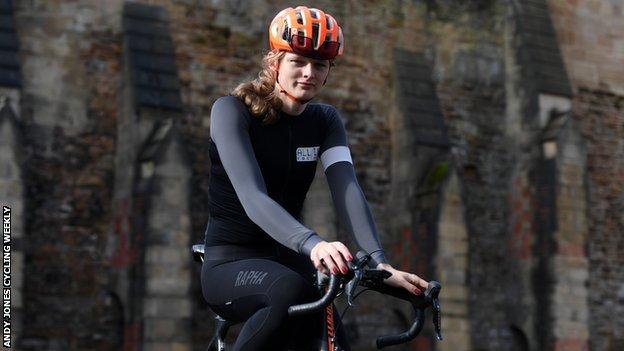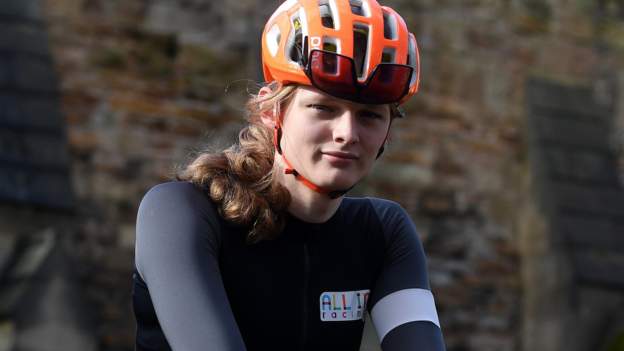
The mother of Emily Bridges has accused cycling’s world governing body of “moving goalposts” after it toughened its rules on transgender eligibility.
On Thursday, the UCI announced it was doubling the period of time before a rider transitioning from male to female can compete in women’s races.
It means that 21-year-old Bridges will not be permitted to compete until 2023.
A statement posted on Twitter by Sandy Sullivan said Bridges had learned of the rule changes through the media.
“Last night Em learnt, via the media, that the UCI had announced a change to their transgender eligibility policy which would come into effect on 1st July 2022,” the statement said.
“As of 1pm today we’ve received no communication from the UCI on their plans & specifically how it impacts Em’s current application which has been part of previous policy process and started in March 2022.
“On 11th May UCI requested Em provide additional blood tests over a period of 3 months along with some personal information. We are now seeking clarity on why they asked for this information when they were already planning on a policy change eluded to by their President during a televised interview in late Spring.
“As you can imagine this uncertainty and moving of goalposts has created a significant amount of distress and upset to Em, to us as a family & the wider trans community.”
Previous regulations required riders to have had testosterone levels below five nanomoles per litre (nmol/L) for a 12-month period prior to competition.
The UCI has changed the permitted level to 2.5 nmol/L for a 24-month period.
Bridges began hormone therapy in 2021 as part of her gender dysphoria treatment but was stopped from competing in her first elite women’s race by the UCI in April, despite meeting the requirements at the time.
The world governing body said that Bridges’ participation could only be allowed once her eligibility to race in international competitions was confirmed.
British Cycling also suspended its current policy, meaning transgender women are currently unable to compete at elite female events run by the organisation.
The UCI said on Thursday scientific studies had shown that it can take as long as two years for muscle strength and power to adapt to a “female level” while 2.5 nmol/L “corresponds to the maximum testosterone level found in 99.99% of the female population”.
A UCI document said it would be “reasonable” to allow transgender athletes to compete with other female athletes if their inclusion “guarantees fair and meaningful competitions”.
It added that it “may not be necessary, or even possible, to eliminate all individual advantages” held by a transgender athlete.
Sports scientist Professor Ross Tucker criticised the UCI, saying it was an “embarrassingly poor advocacy document, disguised as science” which supported its “discrimination against women”.
Writing on Twitter, he said the UCI had “ignored” the voices of athletes and “chosen inclusion over fairness”.
Many argue that transgender women should not compete in elite women’s sport because of any advantages they may retain – but others argue that sport should be more inclusive.
The debate centres around the balance of inclusion, sporting fairness and safety in women’s sport – essentially, whether trans women can compete in female categories without an unfair advantage.
In an interview with DIVA magazine last month, Bridges said she “does not have any advantage” over her competitors, and can prove it with data.


